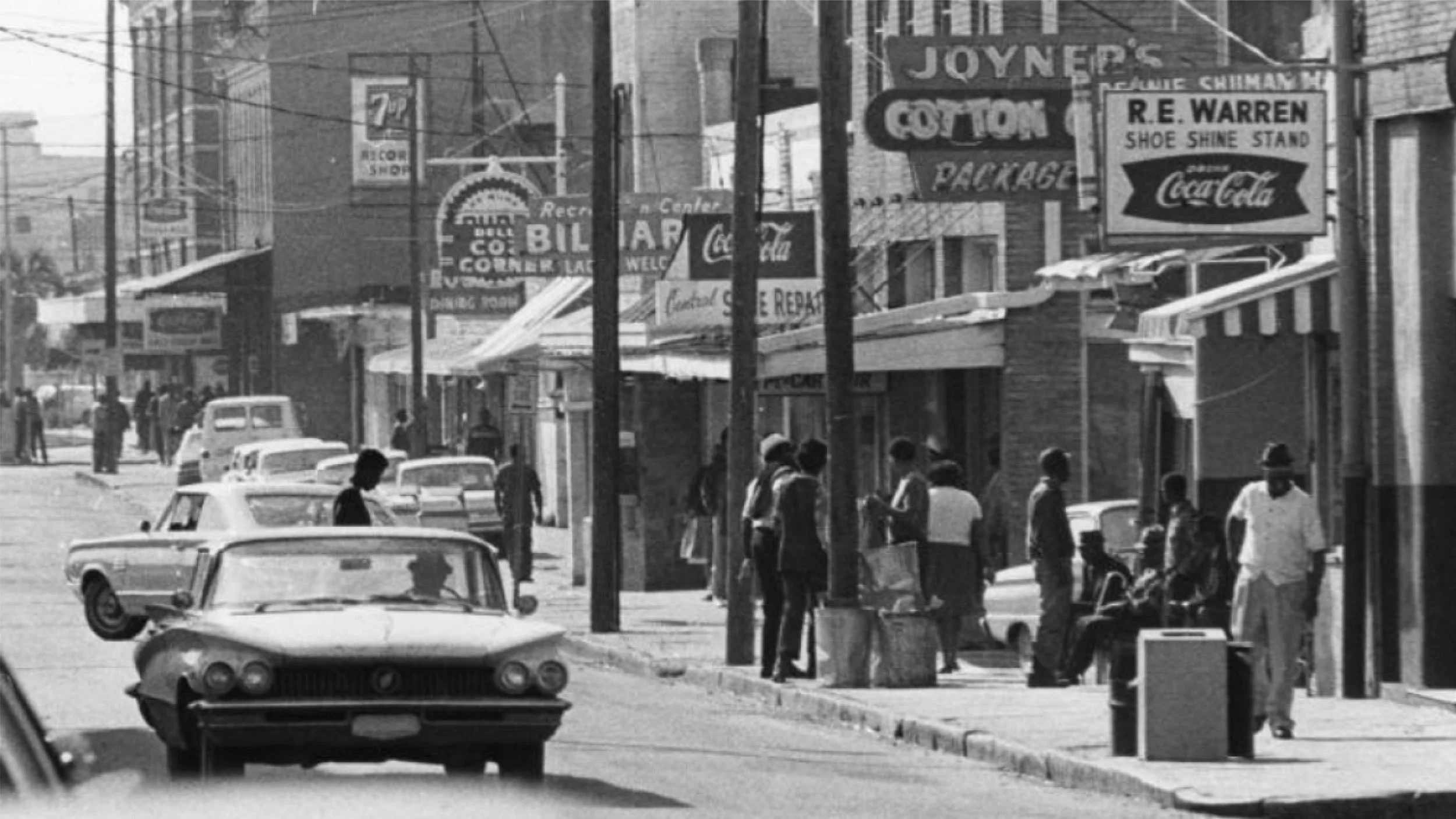The Origins of the Chitlin’ Circuit
The Chitlin’ Circuit was the collective name given to a series of Black-owned nightclubs, dance halls, juke joints, theaters and other venues that were safe and acceptable for African American entertainers to perform in during segregation. The name for the circuit is related to African American foodways, specifically chitlins, that were a food staple for enslaved African Americans and continues as a part of Southern Black cuisine today.
Tampa's Central Avenue during the 1950s.
Photo courtesy of University of South Florida Special Collections.
Like chitlins, the circuit was established to nurture African American performers during a time when they were not allowed in most White-owned venues. Walter Barnes, a Chicago jazz musician and Chicago Defender columnist born in Vicksburg, Mississippi, is credited as being an early originator of the circuit. Barnes successfully established a network of venues across the American South during the 1930s where it was safe, acceptable and successful for African American entertainers to perform.
Prior to Barnes’ circuit, it was common for musicians to book an engagement and stay in one place for a longer period of time. Barnes’ circuit kept musicians moving and employed.

